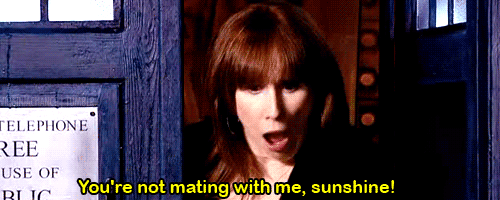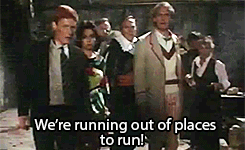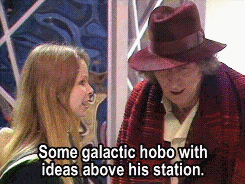 |
| Pedro, Jim Ed, Pudge, & Yaz with their retired numbers in background. Credit: Jim Davis / Boston Globe |
16: Pedro’s age when he signed his first contract with the Los Angeles Dodgers in 1988.
20: Pedro’s age when he made his major league debut.
41.9: The percentage of starts Pedro completed (13 of 31) in 1997.
37.5: The percentage of batters Pedro struck out in 1999, tops among pitchers with at least 100 innings pitched. Randy Johnson ranked second at 33.7 percent. Tim Hudson ranked third at 22.8 percent.
82.8: The percentage of Pedro’s starts the Red Sox won (24 of 29) in 1999.
79.3: The percentage of starts (46 of 58) between 1999 and 2000 in which he allowed two earned runs or fewer.
2: The number of MVP ballots Pedro was left off entirely in 1999, paving the way for Ivan Rodriguez’s robbery.
5: The number of times Pedro led the majors in ERA, more than any other pitcher in MLB history. He won the MLB ERA crown in 1997, 1999, 2000, 2002 and 2003.
2.74: Pedro’s ERA in 96 career games (95 starts) at Fenway.
7: The number of times Pedro finished in the top four in Cy Young voting. As mentioned, it includes three first-place finishes (1997, 1999, 2000).
3.35: The difference between Pedro’s ERA (1.74) and the average ERA for an American League starter (5.09) in 2000. 1968: The last time an AL starter posted an ERA better than Pedro’s 1.74 mark in 2000. It was none other than Luis Tiant, who led the AL with a 1.60 ERA.
0.74: Pedro’s WHIP in 2000, the best single-season mark in MLB history.
756.53: Pedro’s peak performance score on June 6, 2000, according to Bill James’ Pitcher Wave Patterns. It made Pedro the highest-rated pitcher of all time.
190: Pedro’s ERA+ with the Red Sox, meaning his ERA was 90 percent better than league average. [I don't know what this number represents, but it is Bill James' and it rates Pedro the highest of all time, so ...]
46: The number of starts with the Red Sox in which Pedro allowed three hits or fewer.
26.3: The percentage of starts with the Red Sox in which Pedro allowed zero earned runs (53 of 201).
3.59: The difference between Pedro’s strikeout-to-walk ratio (5.45) and the league average strikeout-to-walk ratio (1.86) during his time with the Red Sox.
.760: Pedro’s winning percentage (117-37) with the Red Sox, tops in MLB during that span.
64.6: Pedro’s average game score during his time with the Red Sox. It was the best mark among pitchers with at least 100 appearances, just ahead of fellow 2015 Hall inductee Randy Johnson’s 64.5 mark.
53.8: Pedro’s WAR (wins above replacement) during his seven seasons with the Red Sox. Only Randy Johnson (54.2) had a better mark in that same stretch. Curt Schilling (47.5) and Mike Mussina (35.5) ranked third and fourth, respectively.
313: Pedro’s single-season career-high for strikeouts (1999), a Red Sox franchise record.
1.12: The number of strikeouts Pedro averaged per inning in his career. He’s the only pitcher in MLB history with at least 3,000 strikeouts (3,154) in fewer than 3,000 innings pitched (2,827 1/3).
108: The number of times Pedro struck out 10 or more in a game. He trails only Nolan Ryan (215), Randy Johnson (212) and Roger Clemens (110) in total double-digit strikeout games since 1914.
50.7: The percentage of career starts (207 of 409) in which he walked one or zero batters.
.250: The combined career average (56-for-224) against Pedro for the 12 current Hall of Famers the right-hander faced. Frank Thomas and Barry Larkin are the only two players currently enshrined in Cooperstown to homer off Pedro. They each went deep once.
35: The number of times Pedro struck out Jorge Posada in 86 career regular-season plate appearances. As you might recall, Pedro doesn’t like Posada very much.
.687: Pedro’s winning percentage, which ranks second in MLB history among starters with at least 250 decisions. Whitey Ford (.690) ranks first.
51.84: Pedro’s Win Probability Added (WPA), which is the fifth-best mark since 1974.
141: The number of batters Pedro plunked in his career. He drilled a career-high 16 in 2004.
3: The number of times Pedro was ejected in his career, according to BeyondTheBoxScore.com.
43: The number of hits Pedro had in 518 career plate appearances. He had six doubles and two triples, and the rest were singles. He batted .099 in his career with 190 strikeouts and a .134 on-base percentage. So there was one thing he couldn’t do? Give the guy a break.
19: The number of catchers lucky enough to catch Pedro during his 18-year career. Jason Varitek caught Pedro more than any other, totaling 168 games and 1,113 1/3 regular-season innings. Darrin Fletcher (92 games, 624 2/3 innings) ranks second.
1: The number of times Pedro faced the Red Sox. He allowed eight runs (six earned) on seven hits over three innings in a start against Boston while with the New York Mets on June 28, 2006, at Fenway Park. Alex Gonzalez went deep for the Red Sox against Pedro in a 10-2 win that evening.
37: The only other number Pedro wore in his major league career (with the Montreal Expos in 1994-95)
1983: The last time a Dominican-born player (Juan Marichal) was inducted into the Hall of Fame. Pedro and Marichal are the only two Dominican-born players to be inducted so far.
49: The number of writers who didn’t vote Pedro into the Hall of Fame. [Also, the minimum number of writers who have no business being in the sports writing trade.]


























